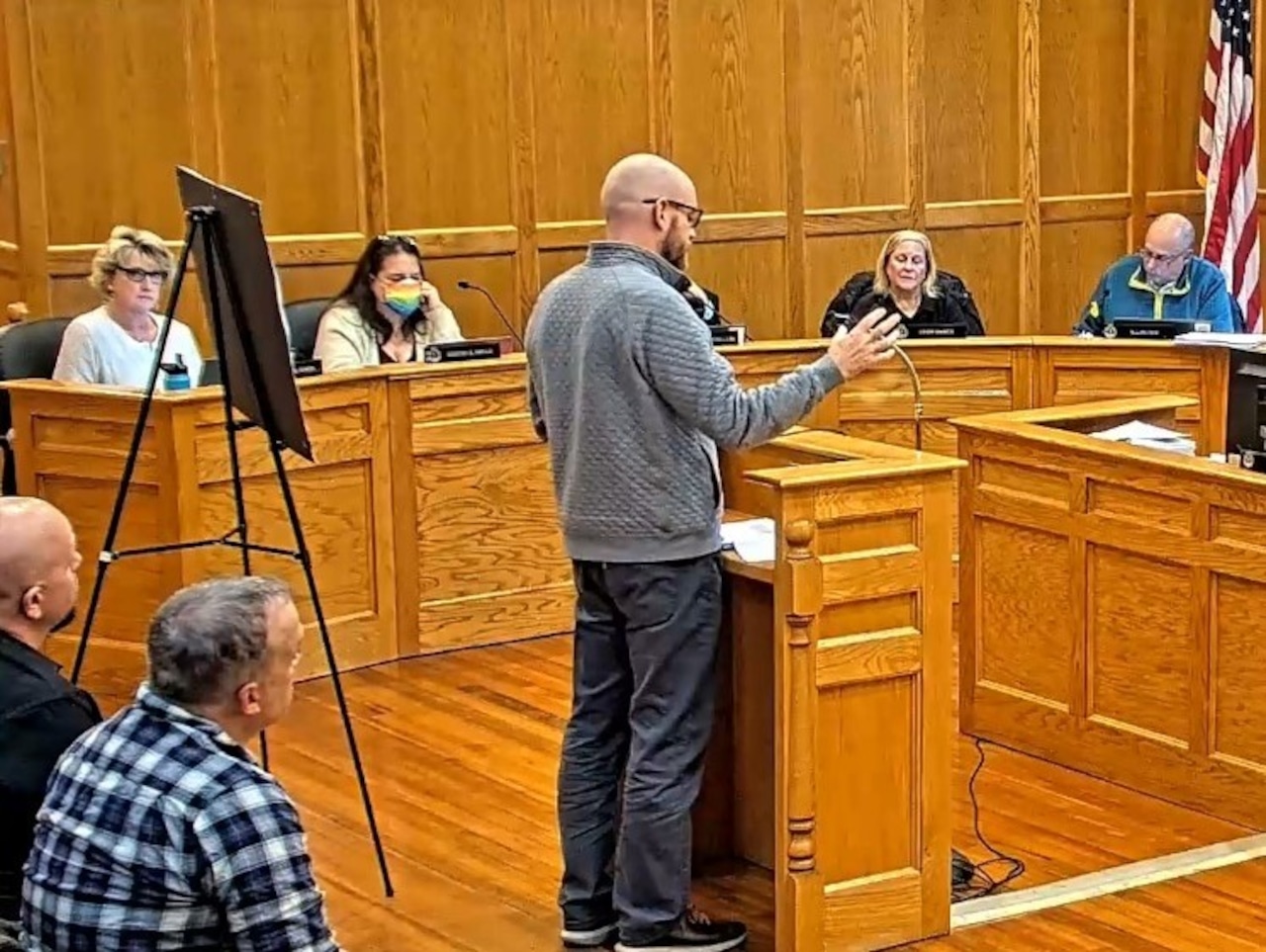
Dear Readers: The following Q&A first ran in 2020.
Dear Amy: A couple of years ago, an acquaintance of ours hosted a dinner party. I was only acquainted with half the people there. The hostess didn’t make introductions.
One person present was someone I had met a few times. (I’ll call her “Jane.”)
I knew that Jane had a partner, “Joan,” whom I had only met once years before.
At the dinner, Jane was sitting next to a man.
At one point I stared across the table because I was trying to determine if this was Jane’s brother, or if Joan was transitioning to male.
I admit that I feel bad for staring, but I was trying to figure out if we had met.
We spoke briefly afterward, and they made no attempt to reintroduce themselves to me.
After they left, the hostess explained that Joan was now “John” and how they hate to have to explain themselves or their pronoun, which is “they.”
I tried to joke: “I didn’t get the memo.” To which the hostess replied, “It wasn’t my memo to send.”
I think the hostess could have spared some social awkwardness with one quick sentence privately, like “Joan is John now, deal with it,” which would have been fine with me.
I am still angry with the hostess for leaving us floundering as to who was at the party. What do you think?
– Befuddled Guest
Dear Befuddled: Let us for a moment go back to nursery school. Have you ever noticed that when children don’t know other kids’ names, they don’t talk to them?
Names: We have them for a reason.
Now let’s talk about this hostess. Who invites a bunch of previously unacquainted (or semi-acquainted) people to their home and then doesn’t introduce (or re-introduce) them to each other at the beginning of the evening? I mean, if you’re going to make a cassoulet, you can certainly make an introduction.
Now onto you. In the absence of hostess-courtesy, why didn’t you introduce yourself to people? “Hi, I’m Befuddled Guest. But please, you can call me Befuddled. Tell me your name?” If the person answers by saying, “We’ve met before” (I get this a lot), you can say – as I always do – “Oh, I’m so sorry, I’ve forgotten that. Remind me of your name?”
I agree that it is not the hostess’s job to deliver the memo about a guest’s gender transition in advance of the party. It IS the hostess’s job to introduce her guests to one another.
If you know someone’s name, you don’t have to ponder or puzzle over their gender. Granted, “John” is likely a male. “Courtney” might be a man or a woman. But gender identity doesn’t matter, because when you know someone’s name, you can just address them by their name, see them as fellow humans, and take it from there.
Dear Amy: I wanted to respond to the recent letter from “Befuddled,” in which a husband laments the estrangement between his wife and her sister. Your advice was beautifully written.
As an RN of some 45 years, I have seen the awfulness of unresolved estrangements, which can be decades long.
I could recount way too many situations, during end-of-life discussions in which it was appropriate to discontinue life support.
But if a family member is estranged from a loved one, once the person dies, so too does any hope of reconciliation.
It is these very people who often struggle with what’s called “complex grief.”
So many times, we nurses would hear stories that break your heart: Each person was longing for the other one to make that first phone call, and apologize.
Of course, many times no one could even recall what exactly was said so many years ago that led to such a fracture between loved ones.
Life is short. Regrets can tear us up.
– Nursing Some Hurts
Dear Nursing: Estrangement seems to be a particularly heartbreaking trend (at least in the questions sent to me). Your perspective is so valuable. Thank you for offering it. I hope your words inspire people to reconsider their relationships and seek ways to reconcile, if possible.
Dear Amy: “Passively Helpful Guy” seems to think that if he offers to help people, he’ll be trapped in an endless loop of offering assistance.
I suggest he try it, just once.
Yes, we should all learn to ask for help – and also learn how to offer it.
– Faithful Reader
Dear Faithful: Exactly. Thank you.
(You can email Amy Dickinson at askamy@amydickinson.com or send a letter to Ask Amy, P.O. Box 194, Freeville, NY 13068. You can also follow her on Twitter @askingamy or Facebook.)
©2024 Amy Dickinson. Distributed by Tribune Content Agency, LLC.






